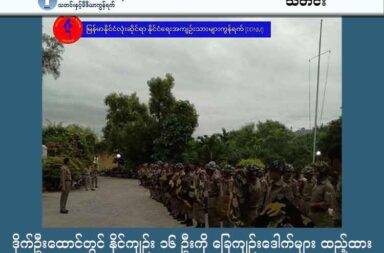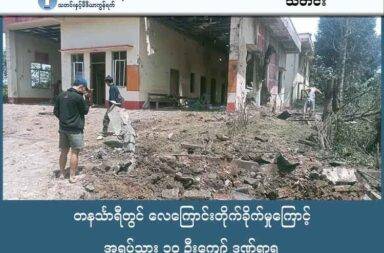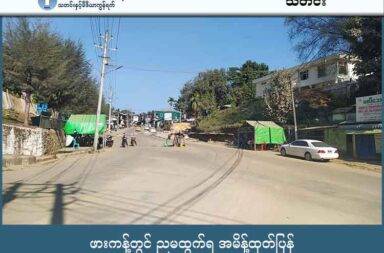Arakan Army Plans To Attend Peace Talks
After enduring heavy Burmese Army airstrikes AA leaders say they still want to discuss peace.
By Network Media Group
March 18, 2019
Despite being embroiled in heavy fighting with the Burmese Army in northern Rakhine State an Arakanese armed group plans to send a delegation to upcoming peace talks after invited by the National Reconciliation and Peace Center (NRPC).
Khaing Thukha, head of the United League of Arakan/ Arakan Army (ULA/AA) information department, said they are going to join the meeting with other Federal Political Negotiation and Consultative Committee (FPNCC) members.
“At this moment, I can’t say much about the specific details but will have more information to share at a later date. What I can say is all of the FPNCC groups will send representatives to attend the meeting,” Khaing Thukha said.
The peace talks in Naypyitaw, the capital of Burma, will commence on March 21. On the first day, the NRPC will meet with ethnic armed organizations (EAOs) that haven’t signed the nationwide ceasefire agreement (NCA), according to the invitation letter. The next day, the Burmese Army’s negotiation team will meet with EAOs one by one.
However, Col. Naw Bu, head of Kachin Independence Organisation/Kachin Independence Army (KIO/KIA) information department, said a decision whether to field representatives to the peace meeting is still pending. The Ta’ang National Liberation Army (TNLA) is also undecided if it will send representatives to Naypyitaw.
“We received the invitation letter and will decide after meeting about whether to attend the peace talks and who is going to attend,” said Maj. Mai Aik Kyaw, information officer for TNLA.
Karenni National Progressive Party (KNPP), from the United Nationalities Federal Council, plans to attend peace talks.
In recent days, fighting has been heavy in northern Rakhine and southern Chin states, Khaing Thukha said. The Burmese Army is randomly attacking ULA/AA positions with heavy weapons and small assault rifles.
“We expect more clashes in the future and an increase of areas affected by fighting. The scale of Burma army’s offensives is worse than ever before. The Army launched airstrikes lasting the whole night on March 13. In my opinion, it was the largest military offensive since World War II,” Khaing Thukha said.
In most of the country the Tatmadaw declared a four-month unilateral ceasefire on December 21, 2018, except the Western front where it’s fighting with the ULA/AA.


